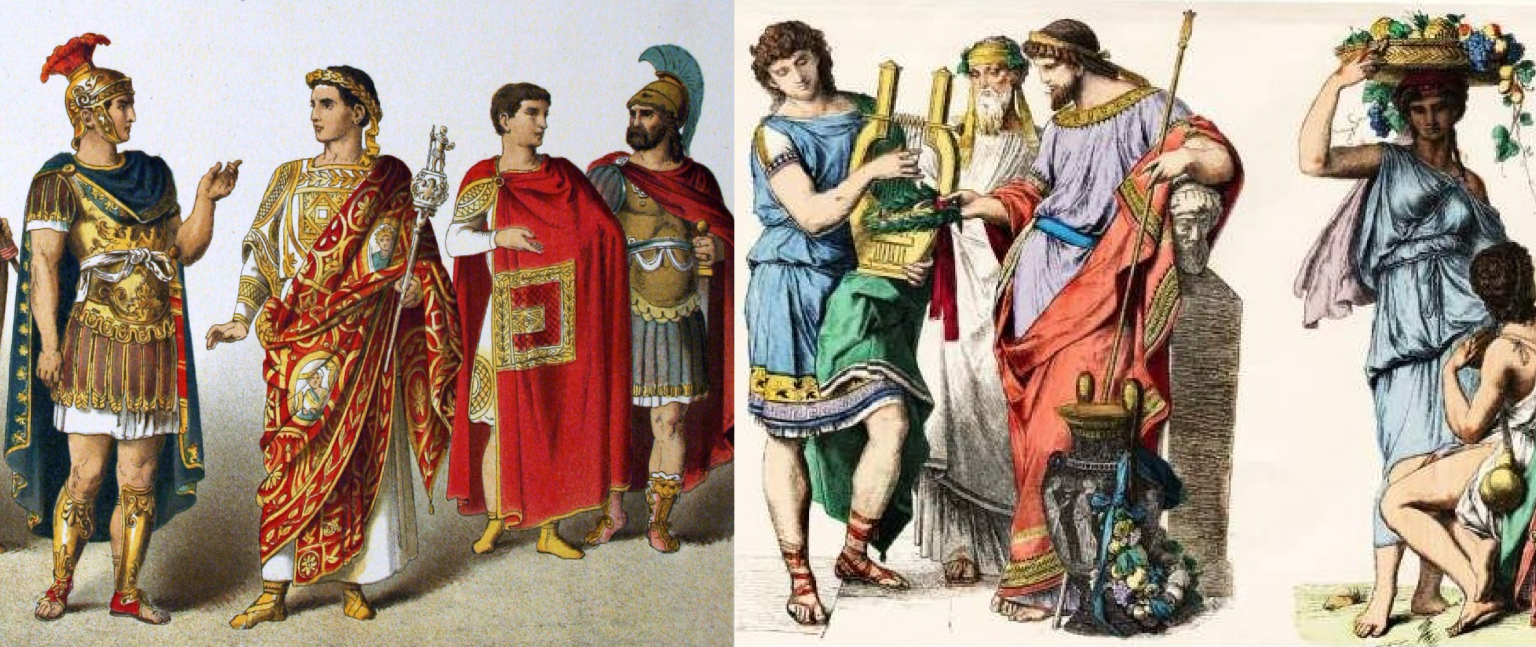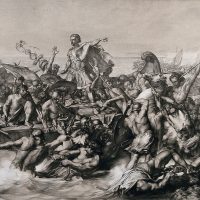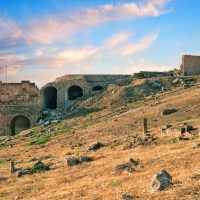In the annals of history, few relationships have been as influential and transformative as that between the ancient Roman and Greeks. These two titans of antiquity, each with its own distinct culture, politics, and worldview, came together in a dance of power, admiration, and rivalry. Their intertwined destinies laid the foundation for much of Western civilization, shaping art, philosophy, governance, and more. But what did each think of the other? Let’s delve into this fascinating dynamic from both the Roman and Greek perspectives.
The Roman Perspective: Admiration and Ambition
To the Romans, Greece was a land of ancient wisdom, art, and culture. The Hellenistic world, with its philosophers, playwrights, and sculptors, was something to be revered. Many wealthy Romans would send their children to Athens, the intellectual capital of the world, to receive a classical education. Latin literature, from poets like Virgil to historians like Livy, was deeply influenced by Greek predecessors.
Yet, this admiration was twofold. While the Romans respected Greek culture, they also saw an opportunity. As Rome expanded its territories, it recognized the strategic importance of the Greek states. The Romans believed in their own superiority in governance and military prowess. They saw themselves as the torchbearers of order and stability, and in their conquest of Greece, they believed they were bringing the benefits of Roman rule to a fragmented Hellenistic world.
However, this Roman perspective wasn’t without challenges. Integrating the sophisticated Greek states into the Roman Empire required a delicate balance. There was a risk of Greek culture overshadowing Roman traditions. The Romans had to ensure that while they absorbed Greek knowledge and art, they did not lose their own identity in the process.
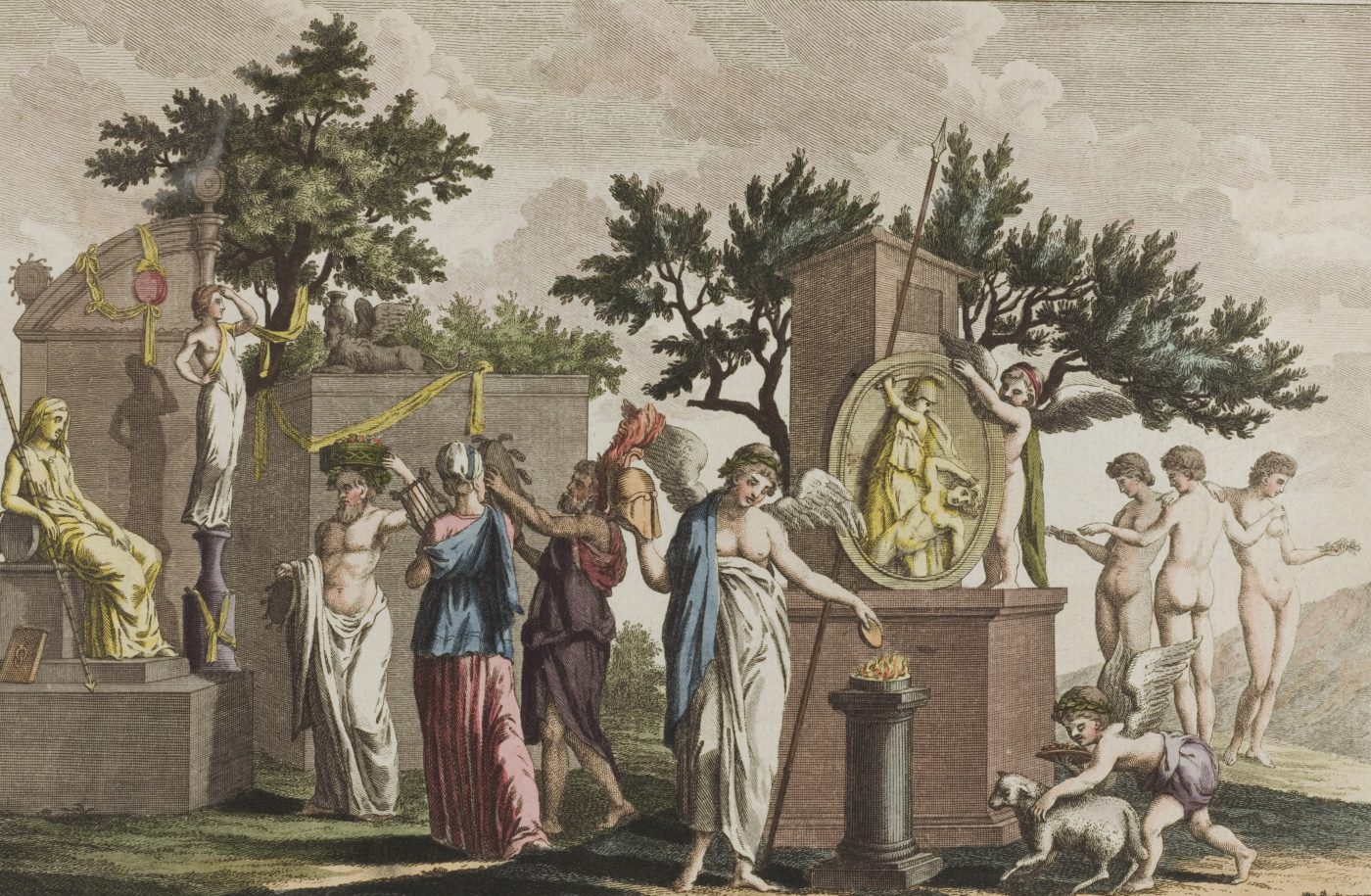
The Greek Perspective: Pride and Adaptation
From the Greek viewpoint, their relationship with Rome was complex. On one hand, there was a sense of pride in their ancient and illustrious history. The Greeks were aware of the Romans’ admiration for their culture, and this often bolstered their own sense of self-worth. They saw themselves as the educators of the Romans, the ones who provided them with the intellectual and artistic tools to build an empire.
However, the reality of Roman conquest was undeniable. While some Greeks saw benefits in Roman governance, bringing with it stability and infrastructure, others felt a loss of autonomy and identity. The challenge for the Greeks was to navigate this new world order without losing their essence. Many Greeks found ways to thrive under Roman rule, integrating themselves into the administrative and cultural fabric of the empire, all while ensuring that their own traditions and philosophies continued to flourish.
Conclusion: A Legacy of Mutual Influence
The Roman-Greek relationship is a testament to the power of cultural exchange and adaptation. Both civilizations, in their interactions, left indelible marks on each other. Rome may have been the political and military superpower, but Greek thought, art, and science permeated the Roman world. This symbiotic relationship forged a legacy that still resonates today, reminding us of the intricate dance of power, respect, and identity that shapes the course of history.
The Tale of King Mithridates: Rome’s Greek Nemesis
In the vast tapestry of the Roman-Greek relationship, few stories are as captivating as that of King Mithridates VI of Pontus, often dubbed “Rome’s Greek Nemesis.” This Hellenistic ruler, with his Greek heritage and ambitions, posed one of the most significant challenges to Roman expansion in the East.
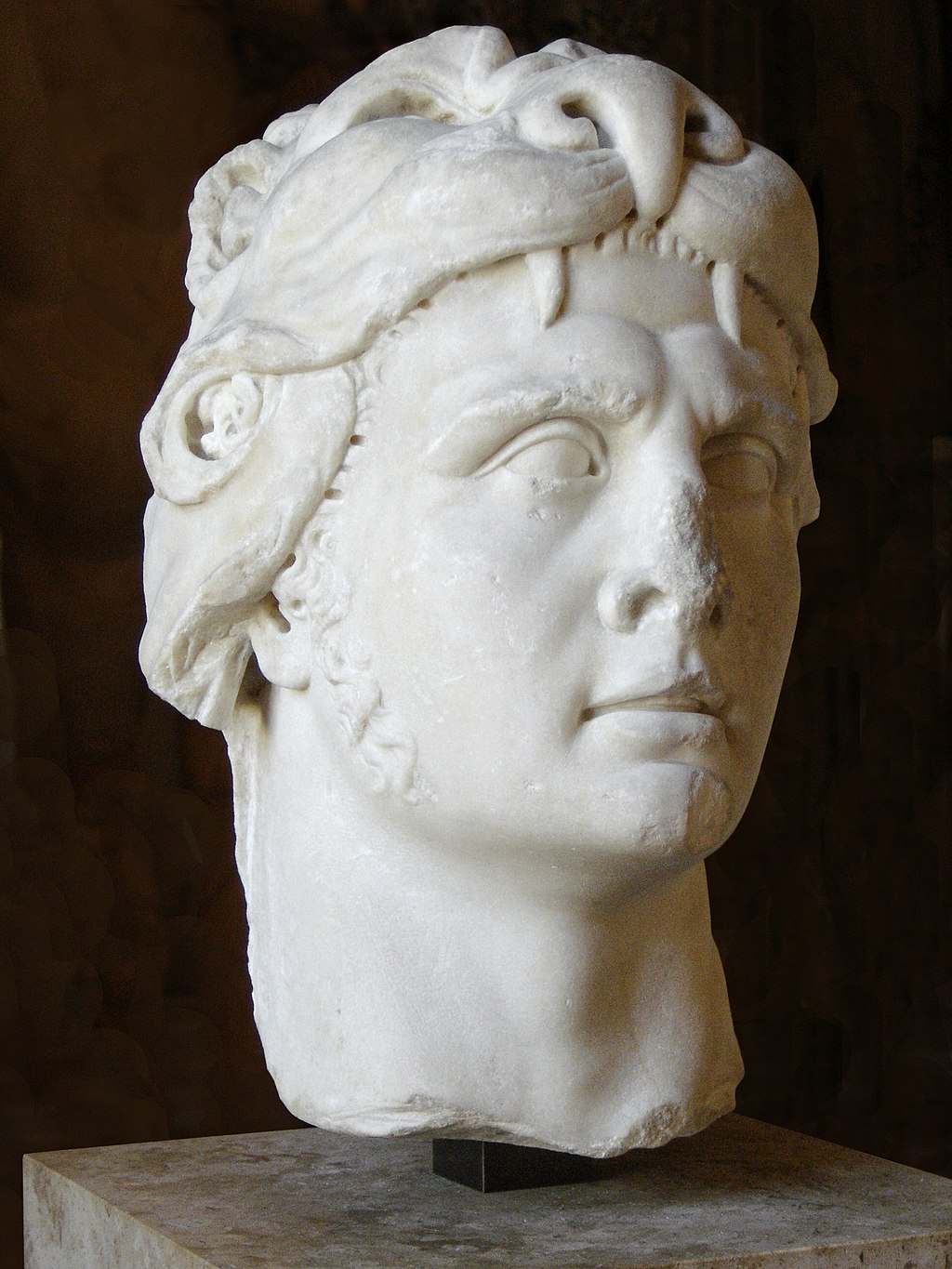
King Mithridates: A Greek Thorn in Rome’s Side
Born in the Kingdom of Pontus, a Hellenistic state on the Black Sea’s southern coast, Mithridates was raised with a blend of Greek culture and eastern traditions. From a young age, he displayed an uncanny aptitude for languages, reportedly speaking over 20, and a fascination with poisons, which led him to develop immunity to many toxins.
As he ascended to the throne, Mithridates’ ambitions grew. He dreamt of a united Anatolia under his rule and sought to drive out Roman influence. This aspiration set him on a collision course with the burgeoning Roman Republic.
The Mithridatic Wars: A Struggle for Anatolia
Over the span of nearly four decades, Rome and Mithridates clashed in what came to be known as the Mithridatic Wars. These conflicts were not merely military; they were a clash of cultures, ideologies, and visions for the future of Anatolia.
The first of these wars began in 88 BCE when Mithridates orchestrated a massacre of Roman citizens in Asia Minor, an event known as the “Asian Vespers.” This audacious move was a clear declaration of his intent to challenge Roman dominance.
Despite several victories, Mithridates could never fully expel the Romans. The wars saw strategies and alliances shift, with both sides experiencing triumphs and setbacks. However, by the end of the third Mithridatic War in 63 BCE, Rome emerged victorious, and Mithridates’ dream of a Roman-free Anatolia was quashed.
Legacy and Significance
Mithridates’ resistance against Rome exemplifies the tensions and challenges of the Roman-Greek relationship. While Rome ultimately prevailed, Mithridates’ defiance became legendary, symbolizing the Greek spirit’s resilience against Roman expansion.
The Odyssey of Aeneas: From Troy to Rome
In the intricate web of Roman-Greek relations, the tale of Aeneas stands out as a symbolic bridge between the two cultures. While the story itself is a blend of myth and history, it’s deeply rooted in the shared narratives of both civilizations, offering a unique perspective on their intertwined destinies.
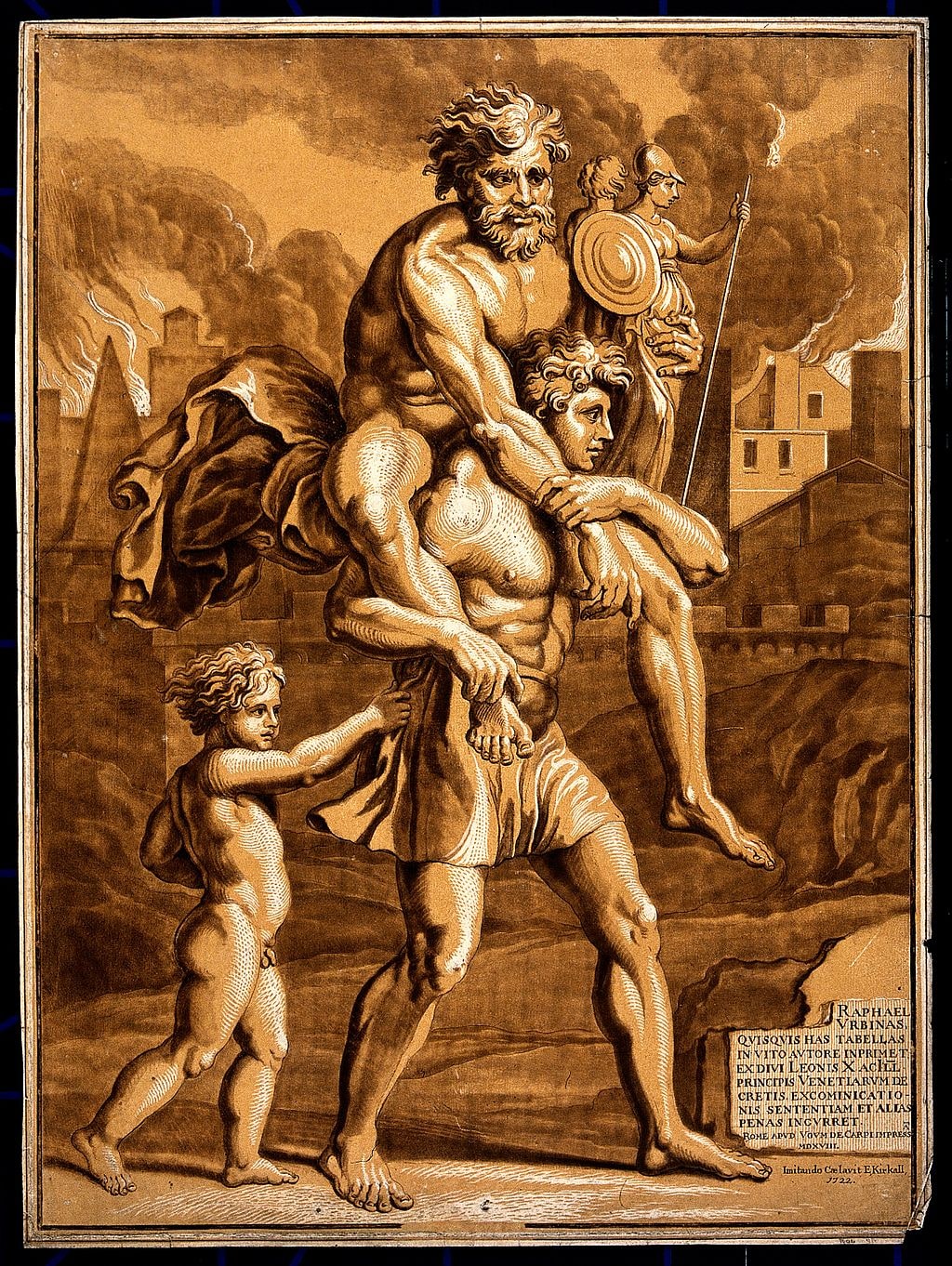
Aeneas: The Trojan Prince with a Roman Future
Aeneas, a Trojan prince, was said to be the son of the goddess Venus (Aphrodite in Greek mythology) and Anchises, a mortal. As the Greeks laid siege to Troy, Aeneas emerged not just as a warrior but as a beacon of hope and resilience. When the city fell, thanks to the infamous Trojan Horse, Aeneas was among the few Trojans who managed to escape the Greek onslaught.
His escape was no mere flight; it was an odyssey. Guided by prophecies and divine interventions, Aeneas embarked on a journey that took him to various Mediterranean locales, including Carthage, where he had a tragic love affair with Queen Dido.
Destiny in Italy: The Foundations of Rome
The gods, especially his divine mother Venus, had a grand plan for Aeneas. His destiny was to find a new homeland for his displaced people. This quest led him to the shores of Italy, where, after battling local tribes and facing internal dissent, he laid the foundations for what would become one of the greatest cities in history: Rome.
The Romans, particularly during the reign of Augustus, embraced the story of Aeneas. The “Aeneid,” an epic poem written by the Roman poet Virgil, chronicles Aeneas’s adventures and underscores his pivotal role in Rome’s divine origins. For the Romans, this Trojan connection served a dual purpose: it linked them to the ancient and revered traditions of the Greeks while also establishing a distinct, divinely-ordained lineage for Rome itself.
The Diplomatic Dance of Tarentum: Rome Meets Pyrrhus
In the annals of Roman-Greek interactions, the saga of the city of Tarentum and its call for aid to the Greek king Pyrrhus stands as a pivotal moment. This real historical event showcases the complexities of diplomacy, ambition, and military might during a time when Rome was still on its ascent and the Greek states were grappling with their own challenges.
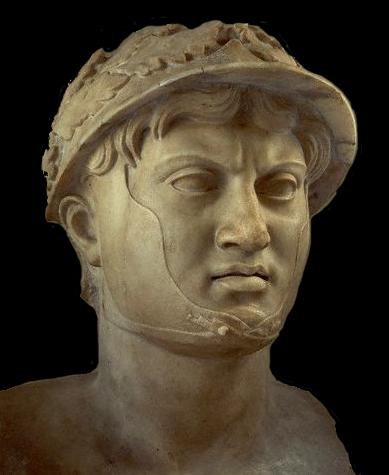
Tarentum’s Plea: A Greek City in Italy’s Heel
Tarentum (modern-day Taranto), located in the heel of Italy, was a prosperous Greek colony. As Rome expanded its influence in the Italian peninsula during the 3rd century BCE, tensions between the Romans and the Tarentines grew. A naval incident, where Tarentine forces attacked Roman ships, escalated the situation, leading Tarentum to seek help from a powerful Greek ally.
Pyrrhus of Epirus: The Greek Answer to Rome’s Might
Enter King Pyrrhus of Epirus, a renowned general and statesman in the Hellenistic world. Recognizing both the opportunity and the challenge, Pyrrhus sailed to Italy with a formidable army, including his famed war elephants. His aim? To aid Tarentum and curb Roman expansion.
The ensuing battles between Pyrrhus and Rome were fierce and costly. While Pyrrhus achieved some victories, they came at such a high price that the term “Pyrrhic victory” became synonymous with a win that inflicts as much damage on the victor as on the vanquished.
The Aftermath: A Greek Legacy in Roman Italy
Pyrrhus eventually withdrew from Italy, and Tarentum fell under Roman control. However, the Greek influence persisted. Tarentum, and other Greek cities in southern Italy, played a crucial role in shaping Roman art, culture, and thought. The challenges posed by Pyrrhus also forced Rome to refine its military and diplomatic strategies, setting the stage for its eventual dominance in the Mediterranean.
1. How did the Roman adoption of Greek gods influence religious practices in the Roman Empire?
The Romans were adept at integrating elements of cultures they encountered, and this was particularly evident in their adoption of Greek deities. While the gods retained their essential characteristics, they were Romanized with new names. For instance, the Greek god Zeus became the Roman Jupiter, and Aphrodite transformed into Venus. This assimilation led to a syncretic religious practice where rituals, myths, and temples blended Hellenistic and Roman traditions, enriching the spiritual tapestry of the Roman Empire.
2. How did Greek philosophy impact Roman thought and governance?
Greek philosophy profoundly influenced Roman intellectual circles. Stoicism, founded in Greece, found eager adherents in Rome, emphasizing duty, reason, and resilience. Notable Romans like Seneca and Marcus Aurelius were Stoic practitioners. Additionally, Greek philosophical ideas on governance, especially from thinkers like Plato and Aristotle, influenced Roman administrative structures and jurisprudence, laying the groundwork for later European political thought.
3. Were there significant Greek figures who played pivotal roles within the Roman Empire?
Absolutely! Several Greeks held influential positions in Rome. One notable figure is Polybius, a Greek historian who lived in Rome and wrote a comprehensive history detailing Rome’s rise to power. His works provided invaluable insights into Roman politics and military tactics. Additionally, many Greek scholars, tutors, and artists were sought after in Rome, further cementing the symbiotic relationship between the two cultures.
4. How did the Greek language influence Latin and the linguistic landscape of the Roman Empire?
The Greek language had a profound influence on Latin. Many Greek words, especially in the realms of art, philosophy, and science, were incorporated into Latin. Moreover, Greek became the lingua franca in the eastern provinces of the Roman Empire. Many educated Romans, including emperors and aristocrats, were bilingual, further testifying to the Greek language’s prestige and influence.
5. How did the Roman conquests of Greek territories impact economic and trade relations in the Mediterranean?
The Roman conquests facilitated a more integrated economic system across the Mediterranean. Greek territories, known for their artisanal goods, agriculture, and trade networks, were incorporated into the Roman economic sphere. This led to increased trade, with goods like Greek olive oil, wine, and pottery becoming highly sought after in Rome. The integration also meant the spread of Roman coinage and economic practices across the Greek territories, fostering a more interconnected Mediterranean world.

